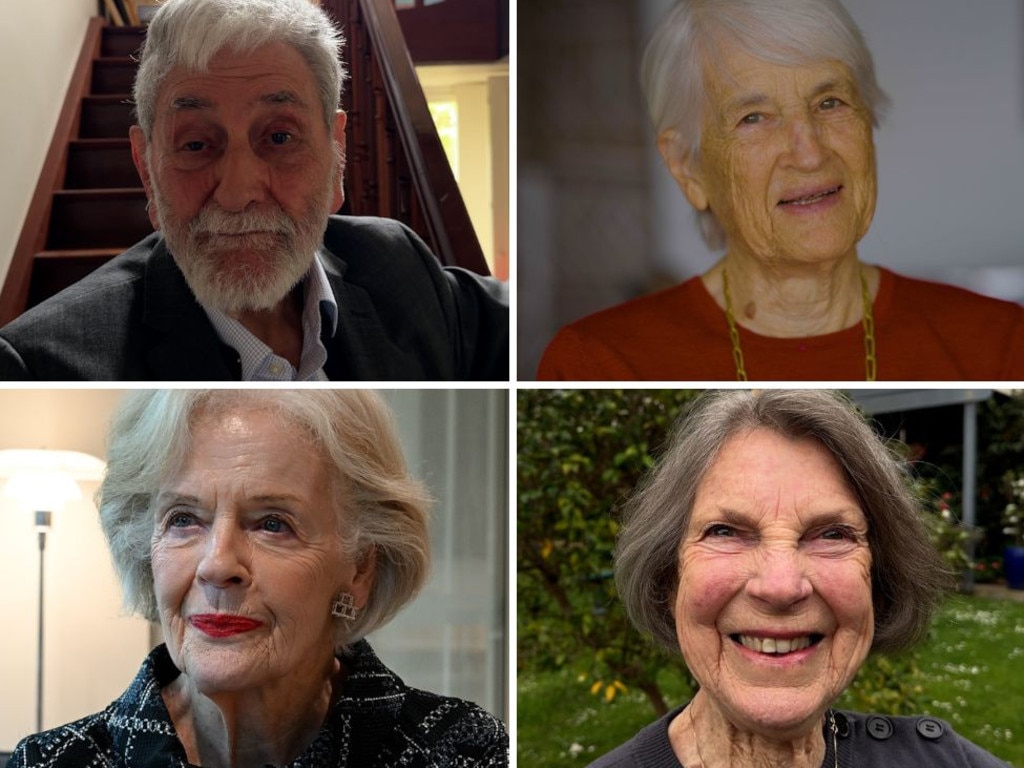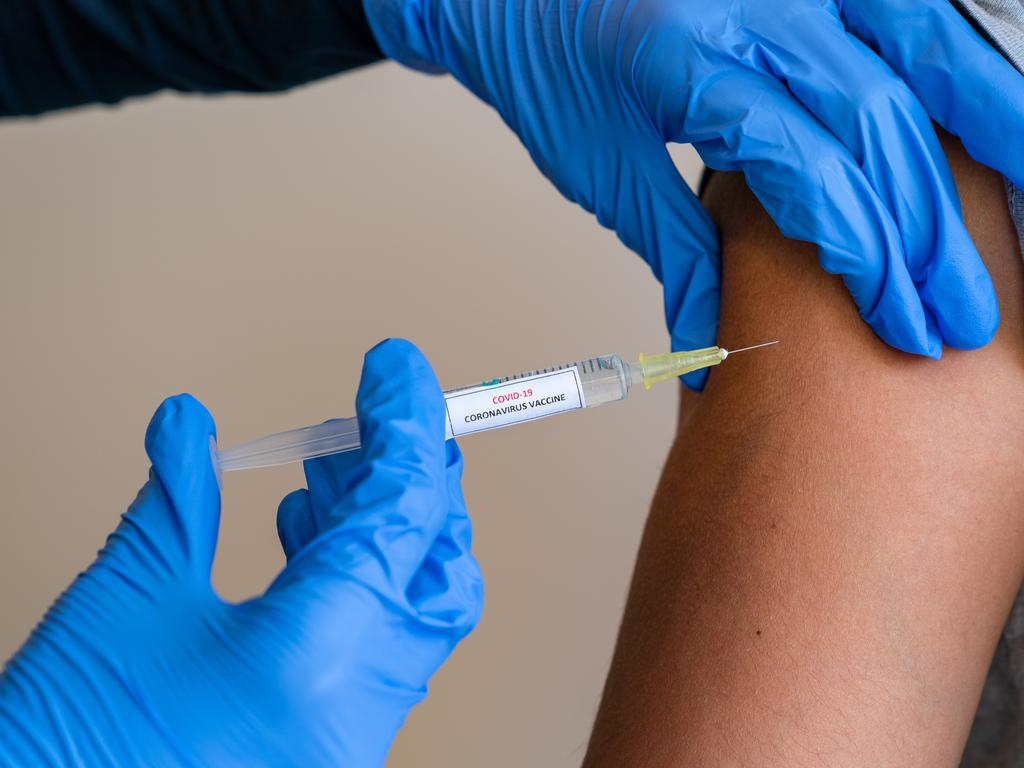Here’s your self-help guide to ageing well in Australia, with expert tips
Want to know how to live better for longer? We all do. Here are the latest tips from Australia’s experts on how to improve your chances of ageing well – and it’s not just diet and exercise.
We all think we know how to live to a healthy old age.
Stick with the Mediterranean diet and one glass of red, do the daily crossword and walk around the block a few times a week and we’ll all be right.
But will we be all right? Really?
Each of us faces a personal challenge as we age: how to enjoy a healthy, happy and meaningful life for as long as possible. But we need good information about what we each need to put in place to achieve that goal.
This is not something we can leave to others to deal with.
For this series, The Australian asks the experts for the best and latest advice on how to Eat, Move, Think, Prevent, Care, Live and Prepare to age well in Australia.
There’s no lack of hints, guides and contradictory dictums out there, and more than a little hokum, but we aim to cut through with what the experts know from trusted research and explain what you can do to help yourself along the way.
To get us started, we’ve assembled a range of expertise in ageing, exercise and diet to help us take a high-level look at how to age well, ahead of a series of stories in coming weeks that explore each of the categories above.
Are we ageing well? What’s the baseline?
Most of us are doing something right, but enough aren’t to be a serious concern, says Velandai Srikanth, director of the National Centre for Healthy Ageing at Monash University.
Professor Srikanth points to the latest Census data about how older Australians self-assess their health – about 70 per cent consider themselves healthy. But even on that subjective assessment, that leaves an unhealthy 30 per cent. At present that equates to about 1.3 million people, but by 2063, on present trends, there will be 3 million Australians who put themselves in the unhealthy category.
While we have “fantastic healthcare in our country compared with many other countries”, Professor Srikanth says, we could still be doing a lot better, especially in the later years.
“We might find that we age reasonably well … up to a point, but then we might fall off a cliff very quickly with increasing frailty and the number of conditions we may have,” he says.
“The idea is to try and minimise the number of health conditions as we get older (and) smooth out that last bit (to make us) more active, more productive and happier.”
Of course the “how” is the tricky bit.
Yun-Hee Jeon, professor of healthy ageing at The University of Sydney, says if the test of whether we’re ageing well is living longer without chronic disease, then as a population we are failing that test – but the issue is more complex than that.
“Fifty per cent of people aged 65 and over have multi-morbidity (more than one chronic health issue), and for those 75 and older, it increases substantially up to 80 per cent, some with four or five health issues,” Professor Jeon says.
But it’s a deeper question than health. People have an ability to adapt and self-manage, she says, to find an equilibrium and sense of wellbeing, whatever they are facing health-wise.
“I think if we look at health as a journey … and having that ability to adapt to challenges in their lives that include chronic health issues, I think we are doing OK,” she says.
The director of exercise and sports science at Edith Cowan University, Ken Nosaka, also notes the difference between living long and living well.
“The difference between the life expectancy (84 years in Australia) and health span, which is the part of a person’s life during which they are generally in good health, is about 10 years currently,” Professor Nosaka says.
“It does not appear that health span increases as life expectancy does. The shorter the difference, the better. To increase health span, regular exercise is necessary.”
When should I start thinking about this? Am I already too late?
The experts speak as one here. It’s never too early and it’s never too late to do something to improve your chances of living a long, healthy life. The trick, though, is to turn intention into action.
“It’s never too late. In fact we can make changes to our diet that impact our gut health in just days,” says leading dietitian Jemma O’Hanlon. “In months we can actually improve our (overall) health through our diet.”
Professor Srikanth, who is also a specialist geriatrician, says “any action at any age is fantastic”, as the evidence shows that improvements can be made to older people’s frailty through greater physical activity, no matter how old they are.
“Having said that, I think the greatest value is going to be … in middle age, where we start to accrue the first of our health conditions,” he says.
“I remember when I was 45, I started to squint at the small print and started to need glasses. It’s those kinds of indications that your sensory systems start to change.
“I think in an ideal world you’d find that between 40 and 60 years is when we have to pay a lot of attention to our health and our lifestyle.”
Professor Nosaka, meanwhile, says it’s important to get moving early, or risk sharp declines.
“Our physical function decreases at about 1 per cent a year after 30 years of age or so,” he says. “This means that our muscle strength, endurance and flexibility may decrease about 40 per cent between 30 and 70 years.”
You can’t stop the decline, but you can change its starting point, and its pace, he says.
“Unfortunately the rate of decrease is not largely reduced by exercise, but if we are physically inactive, the rate of decrease increases,” Professor Nosaka says. “For instance when we are hospitalised and can’t move, our muscle strength and endurance may decrease 1 per cent in a week.”
What if I put my head in the sand?
It isn’t pretty.
Professor Jeon says ignoring our health and wellbeing leads to “an increased risk of chronic disease”.
“It could be diabetes, heart disease or hypertension, but it also lowers our immune system,” she says. “People experience very significant levels of stress. They always feel tired. They may experience anxiety and depression and ultimately lower their quality of life.”
Professor Nosaka says those who ignore their physical health pay an increasingly high price.
“When physical fitness, especially muscle strength, decreases, it makes us feel more fatigued and uncomfortable to be physically active, making us less physically active. This causes a vicious cycle.”
Ms O’Hanlon says consistently poor diets can be “really detrimental to our health”.
“Poor diet is linked with obesity, heart disease, type 2 diabetes and many cancers, which many people are not aware of. (And) it is linked to poor mental health.”
What should we be doing at a minimum?
Most of us know what to do to prosper in our later years. Maintain a good diet and regular exercise. It’s just a question of doing it and sticking at it, our experts say.
“Physical activity is a given,” Professor Srikanth says. “Doing some exercise throughout the week which is at least moderately vigorous for at least half an hour a day is important.
“Lightly sweating while we’re working out, or even just breathing slightly harder are indicators of moderate physical activity.”
He adds that strength work is also crucial to reduce the risk of frailty or lost muscle condition in later life.
“Diet becomes the next important issue. Ideally, having a diet which is more close to a Mediterranean diet, with pulses and grains, less red meat and processed foods, higher amounts of fish and less alcohol, small amounts maybe.”
Professor Nosaka says the official recommendation for 20 to 30 minutes of moderate-intensity exercise each day is a big ask, often leaving people looking to start afresh daunted to the point of stasis.
“I like to say even five minutes of exercise every day is good,” he says. “You can increase your muscle strength just using your body weight, doing exercises such as sitting and standing slowly when you get up and down out of a chair, or push-ups against a wall. They’re very effective.”
Ms O’Hanlon says eating more fresh, unprocessed foods is a minimum requirement. “We need to be getting our two serves of fruit, our five serves of vegies and our whole grains in every day,” she says.
“We need to be having legumes. We need to be having fish and seafood, and we need all those different colourful plant foods in our diet.”
Professor Jeon warns that making these changes will require effort, a conscious reconsideration of our values, and potentially support from others to help you through the days of low motivation.
“It doesn’t have to be going to a gym every day. It could be joining a social network or club,” she says.
Diet: What’s the latest?
Ms O’Hanlon says the Mediterranean diet isn’t the world’s No.1 ranked healthy diet for nothing.
“It really does tick all the boxes,” she says. “We actually need to include all these healthy foods in our diet, healthy fats, healthy carbs, and that is what the Mediterranean diet is all about. So it’s about fruits, vegetables, whole grains, legumes, nuts, seeds, lots of extra virgin olive oil, and less processed foods and processed meat. So it’s very easy to actually introduce it into your lifestyle.”
Another key trend is fibre, she says.
“Fibre really is king. We’re learning more and more about the science of gut health every day, and if there’s one thing we can all do with more of, its fibre.
“We get fibre from our plant foods, so our fruits, our vegetables, our whole grains, our legumes, our nuts and seeds and healthy fats like avocado.
And if we have more fibre in our diet, we’re actually going to age less. Studies have shown (that) when we have 10g of extra fibre in our diet every day, we’re going to age less by about four years,” Ms O’Hanlon says.
And exercise? Anything new out there?
Professor Nosaka says he is a big advocate for eccentric exercise for older people. Even in small amounts it has shown benefit, he says, and is more easily incorporated into everyday life.
Eccentric exercises are those that focus on lowering weight with control. They help with muscle strength and flexibility and are less likely to cause injury.
“I recommend four exercises: 1) sitting to a chair slowly; 2) sitting on the front of a chair and leaning back slowly; 3) push-up exercise against a wall, but bending the elbow
joints slowly to kiss the wall; 4) raising both heels from the floor, standing on one leg, and lowering the standing leg heel slowly to the floor,” he says.
“It is better to do each exercise 10 times every day. It takes only five minutes to complete the four exercises, but you may spread the exercises in a day.”
What about my mind? Will Wordle save me from dementia?
According to recent Australian Bureau of Statistics data, dementia is set to overtake ischaemic heart disease as the nation’s leading cause of death. It also lays waste to quality of life for many people in their final years.
There are about 420,000 people in Australia living with dementia. What can we do to minimise our risk of joining them?
Professor Jeon says while there is no cure at present, as well as uncertainty about the effectiveness of new drugs on the market that purport to slow its progress, there are ways to cut the risk of being afflicted by dementia.
She says a recent Lancet article listed 14 risk factors for dementia ranging across the life course, and if they could be effectively addressed, the prevalence of dementia could be halved.
These include low levels of education as children, and then a series of midlife factors such as high bad cholesterol, hearing loss, obesity, smoking, physical inactivity, diabetes, social isolation, air pollution and vision loss.
“If we can work on these risk factors, we could really reduce the prevalence of dementia,” Professor Jeon says.
Professor Srikanth agrees there are now clear pointers for people to reduce their own risk of dementia.
“Physical activity, diet, social connections, keeping your mind engaged, having purpose, keeping your cardiovascular health really looked after, so making sure that your blood pressure is well controlled, your cholesterol is well controlled,” he says.
“If your hearing and vision is not great, make sure that they are attended to in such a way that you can participate in the community and not be shut out from sensory inputs. All these things have a cumulative effect.”
So, Wordle?
“Doing puzzles is not a bad thing, but it’s more about the context,” Professor Srikanth says.
“You need to be interested, engaged, properly connected with people while you do it. So the stimulation factor is important. There’s no evidence to say just doing Wordle alone reduces your risk of dementia, but certainly it’s one component of many things that keeps your brain ticking over.”
Besides diet and exercise, the key to ageing well is …?
Maintaining social connection, remaining active, staying heard and having a sense of purpose are each in their own way critical components of ageing well, the panel says.
Professor Srikanth says retaining social connection is a vital ingredient of life in our later years, and not simply because social isolation has significant health consequences, including greater risk of cardiac disease and other conditions.
Governments have a role in assisting older Australians to improve and enhance this, he says.
Older people also need a sense of purpose, whether that be continuing on in paid work or something as simple as helping a neighbour, seeing grandchildren or tending to a garden.
“I know for a fact that those who lose that purpose, lose that spark in life, and that sort of quickly brings on a decline in their physical health as well,” he says.
“I think purpose is being recognised … as something that’s important to consider in the overall health of a person as they get older.”
Professor Jeon says it’s critical older people continue to have a sense of control and independence over their lives, no matter how frail they are, or whether they have dementia. Without it they lose confidence and start withdrawing from life.
Speaking to The Australian from South Korea, where she and her siblings were helping her mother who had recently come out of hospital after a serious health scare, Professor Jeon says she saw this first-hand.
“After the initial acute phase, my mum started wanting to do things on her own,” she says.
“She wanted to be able to wash dishes. When my mum was actually able to do that on her own, I could see her face lighten up, and then she could actually speak more clearly. She started remembering things better, and doing better.”
A final word
A former NSW premier, Jack Lang, once famously said: “In the race of life, always back self-interest – at least you know it’s trying”. If we want long and healthy lives, there is work for each of us to do. Let’s hope readers take the information in this, and articles in the weeks to come as a call to action. Forgive yourself for slip-ups, but perhaps aim for a new, healthier routine.





